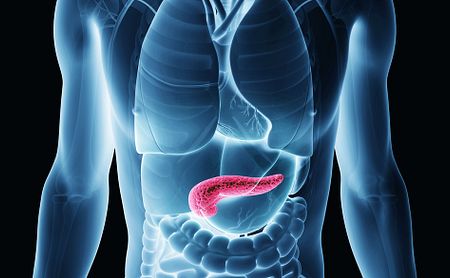Phase 2b Trial of MS1819, Yeast-based EPI for CF, Fully Enrolled
Written by |

xsense/Shutterstock
AzurRx BioPharma announced that its Phase 2b trial evaluating the safety and efficacy of MS1819 in treating exocrine pancreatic insufficiency (EPI) in cystic fibrosis (CF) patients is fully enrolled.
Thirty adults with CF are taking part in the OPTION 2 study (NCT04375878) comparing MS1819 with the current standard EPI treatment. Top-line results are expected by April.
“Completion of enrollment in our Phase 2b OPTION 2 trial is an important milestone in the clinical development of MS1819 as an EPI monotherapy for patients with cystic fibrosis,” James Sapirstein, CEO, president, and chairman of AzurRx, said in a press release.
Viscous mucus that accumulates in people with CF can cause EPI. The mucus interferes with the normal working of organs, raising the risk of infections in the lungs, and blocking the release of enzymes needed to break down food — such as fats — from the pancreas. The loss or reduction of pancreatic enzymes limits patients’ ability to absorb key nutrients.
Current EPI treatment relies on pancreatic enzyme replacement therapy (PERT). Standard PERT substitutes a patient’s lost or diminished pancreatic enzymes with those derived from pigs. Although helpful, PERT raises ethical concerns for its reliance on animal products, and some patients tolerate it poorly.
As a synthetic fat-cleaving enzyme — called a lipase — derived from yeast, MS1819 may provide a viable alternative.
“MS1819 is a synthetic lipase that does not contain any animal products and offers the potential to substantially reduce the daily pill burden currently required to manage EPI,” said James Pennington, MD, AzurRx’s chief medical officer.
PERT, he added, “requires patients to take upwards of 40 capsules per day to control symptoms.”
OPTION 2 is testing the investigational therapy’s safety, tolerability and efficacy compared with that of PERT.
Its main goals are the safety of MS1819, as measured by reported side effects, and treatment efficacy, as measured through the coefficient of fat absorption — or the proportion of fat a patient absorbs from their diet — at three and six weeks.
Secondary goals involve assessing stool weight, malabsorption (an inability to absorb nutrients), and the coefficient of nitrogen absorption, another means of assessing how well pancreatic enzymes are working.
The trial consists of two treatment groups.
In one, patients receive standard PERT for three weeks, followed by MS1819 — at 2,240 mg or 4,480 mg per day using enteric (delayed release) capsules — for another three weeks. In the other group, the order of therapies is reversed. This crossover design makes possible direct treatment comparisons within the same patient.
Participants who complete this main study phase may take part in an extension phase where all be treated with MS1918, possibly in an immediate release formulation. A trial arm added to OPTION2 is testing MS1819 as immediate release capsules. A comparison of data from the delayed- and immediate-release groups will help the company determine the best delivery method.
“Data from this trial will inform the optimal dose for a potential pivotal Phase 3 study,” Sapirstein said. According to the company, results from the extension phase are expected in by midyear, with the Phase 3 trial planned to launch in 2022.






